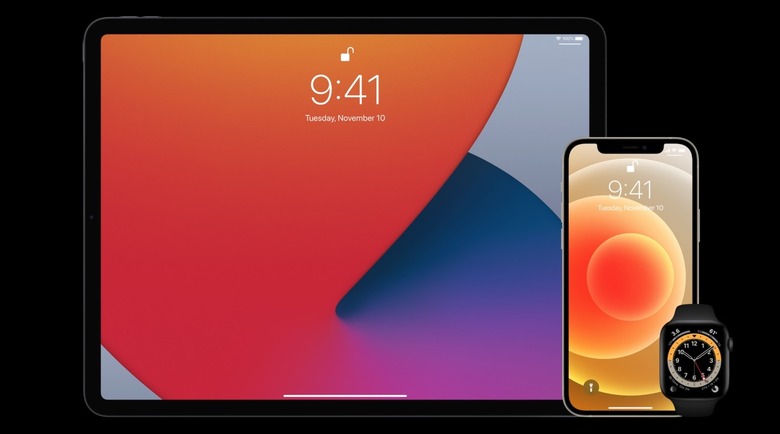We Know Exactly Why There's No iMessage App For Android
Almost ten years ago, Apple unveiled the new iMessage app at WWDC 2011; the app would replace SMS texting on iPhone with something much better. iMessage works over cellular and Wi-Fi, adding a richer instant messaging experience over an internet connection. The app also provided end-to-end encryption, the kind of strong privacy protection other chat apps lacked. Apple brought the app to iPhone, iPad, and Watch in the following years, but it never developed iMessage versions for competing platforms.
There never was an iMessage for Android or Windows, and nobody came close to replicating that success. A decade later, iMessage is still unrivaled, although Google is finally close to operating a decent competitor on Android — RCS doesn't have end-to-end encryption, however. A recent discovery finally tells us exactly why there's no iMessage for Android, suggesting there likely won't be one.
Apple is currently embroiled in a massive legal battle against Epic Games. The latter orchestrated a situation last year that forced Apple to remove Fortnite from the App Store for violating the store's rules. Fortnite included an alternative payment option that Epic snuck by Apple's reviewers, contravening the service terms. Recent court developments in the case unearthed more details about the upcoming legal affair. Epic has been planning the antitrust lawsuit for two years, the documents reveal. Apple intends to argue that it faces plenty of competition in the market for video game transactions in the trial that should start on May 3rd.
Apple's handling of iMessage for Android is part of new court filings that Epic Games submitted, MacRumors reports. Epic used emails between Apple execs from 2016 and extracts from depositions with Eddie Cue, Craig Federighi, and Phil Schiller to indicate that Apple is locking customers into its ecosystem with its apps, iMessage included.
Apple could have made an iMessage version for Android but concluded that such an app might hurt it. The documentation offers several examples referencing Apple's line of thinking on the matter:
a. As early as 2013, Apple decided not to develop a version of iMessage for the Android OS. (Cue Dep. 92:22-93:1.)
b. Mr. Cue testified that Apple "could have made a version on Android that worked with iOS" such that there would "have been cross-compatibility with the iOS platform so that users of both platforms would have been able to exchange messages with one another seamlessly". (Cue Dep. 92:5-9; 92:11-16.)
c. However, Craig Federighi, Apple's Senior Vice President of Software Engineering and the executive in charge of iOS, feared that "iMessage on Android would simply serve to remove [an] obstacle to iPhone families giving their kids Android phones". (PX407, at '122.)
d. Phil Schiller, an Apple executive in charge of the App Store, agreed that Apple should not offer iMessage on Android devices. (Cue Dep. 92:18-93:1.)
e. In 2016, when a former Apple employee commented that "the #1 most difficult [reason] to leave the Apple universe app is iMessage . . . iMessage amounts to serious lock-in" to the Apple ecosystem, Mr. Schiller commented that "moving iMessage to Android will hurt us more than help us, this email illustrates why". (PX416, at '610; Cue Dep. 114:14-115:2.)
As popular as iMessage might be, the fact remains that it's not the world's most use chatting system. That title goes to the Facebook-owned WhatsApp, which works on both iPhone and Android, and features the same strong encryption and rich chatting features as iMessage. Apple might be looking to lock in users with its apps, but that's a common business practice. Apple can't be forced to port its successful apps on other platforms. People have found ways to replace iMessage with something else, and that shows there's plenty of competition that gives user choices for instant messaging needs, even without an iMessage for Android app.
iMessage might be a great reason to switch or stay on iPhone, but it's hardly the only one. Epic's documentation also lists other Apple apps that help the company lock in customers, in Epic's opinion. The list includes Find My Friends and Continuity.
Epic does make a great case that Apple built great iPhone apps and experiences to bring in more and more users to its platforms. The irony here is that Epic wants to take advantage of the iPhone success to advance its own interests. It wants access to millions of potential customers that use iPhones and other Apple devices, it wants control transactions, and it wants its own storefront. But without all these great iPhone apps that lock in users that Epic is complaining about, the iOS ecosystem might not even be that appealing to Epic, to begin with.
